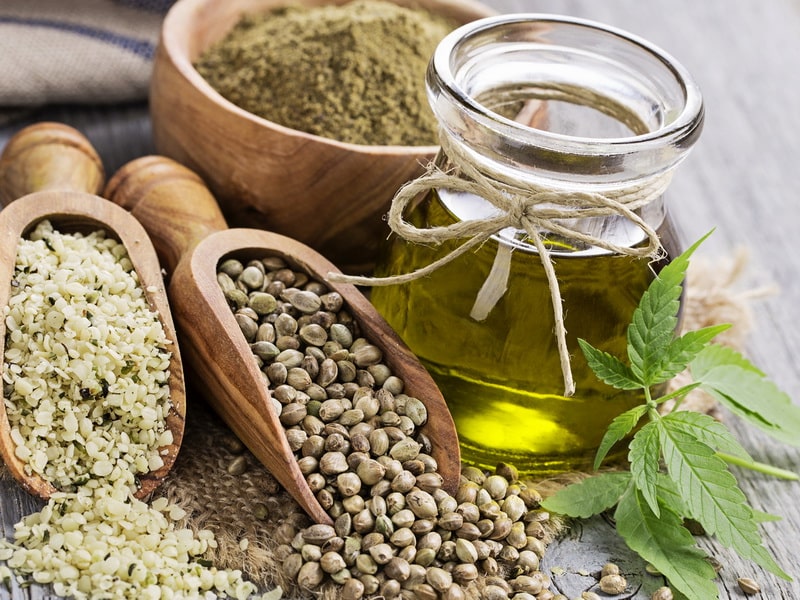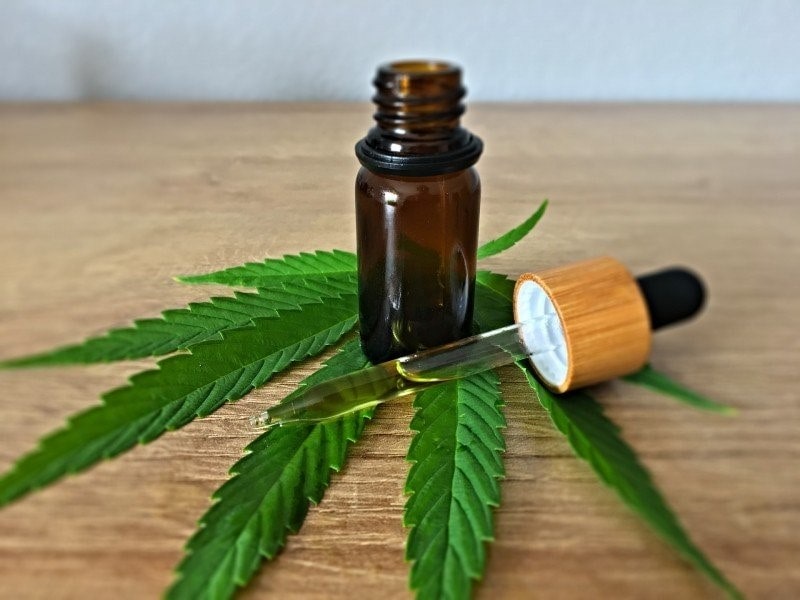
What is CBD oil? This question is being asked by more and more people who are looking for an effective and natural cure for lifestyle diseases these days.
CBD, known as cannabidiol according to formal nomenclature, is an important naturally occurring cannabinoid extracted from the flowers, leaves, and to a lesser extent, stems of hemp. CBD oil contains the second most common cannabinoid. Historical data suggests that it is subordinate to other important compounds with psychoactive properties. Today, however, a growing number of researchers and manufacturers are learning about the benefits it has to offer. CBD positively impacts health and well-being – its therapeutic potential is limitless. As consumers consider using CBD-based products, many are asking the question: what is CBD hemp oil?
How is CBD oil made?
Since CBD hemp oil is non-psychoactive, does not cause intoxication in individuals, and is legally commercially available – it can be purchased in stationary and online stores in many different forms. These oils appear on the market in various capacities and concentrations. They can be used when treating a variety of ailments.
The production of CBD oils begins with sourcing organic hemp grown in the EU, which has been cultivated for the health of patients. Once the plants are mature, they can be harvested and processed. The terpenes and cannabinoids, which are chemical compounds with therapeutic effects, are then extracted from the flowers. For this, technologically advanced methods of supercritical CO₂ extraction are used. The process produces CBD oils that intentionally preserve the complex set of cannabinoids and the full spectrum of terpenes present in the hemp plant.
Crude vs. purified
CBD oils can be divided into two main categories: crude and purified. Crude oils are enriched with plant oil after extraction and are not further processed. The oils produced by this method are the most natural, retain a dark green color, and their concentration is subject to significant variation. Their taste and smell is characteristic, similar to that of hemp, but more intense.
In addition, raw oils are not always decarboxylated, meaning that the other active ingredient in the form of cannabidiolic acid (CBDA) has not been converted to cannabidiol (CBD) during the process involving heating of hemp flowers and other plant matter. When it comes to use, raw oils tend to be more dense and contain beneficial chlorophyll, and are just as easy to use as refined oils.
This is different with purified CBD hemp oils, which are extracted and then filtered to remove chlorophyll, waxes, or any excess plant matter contained in the raw oils. Pure oils are easily recognizable because of their golden color, pleasant smell, and runny consistency.
Both types of CBD oil are used for different groups of patients, depending on their needs and desired therapeutic effect. The market also offers partially purified oils, which are similar to crude oils in color and taste, and purified oils in consistency.
Full spectrum of action
The effects of consuming CBD oils made from CBD crystals are noticeably less comprehensive than is the case when applying oils containing a diverse, interactive set of cannabinoids. Cannabidiol (CBD) should not be separated from the other substances in hemp that complement its effects. Hence, avoid consuming CBD oils that contain artificially separated CBD in crystal form.

How to use CBD oil?
CBD oils are taken orally once or several times a day. Proper dosage is facilitated by using small bottles with a dropper. Drops are available on the market in many different concentrations such as: 3, 5% and 10%, 20%, 30% and many others to suit the needs of each user. Moreover, it is easy to take the oil with you and can be discreetly taken while doing other activities. There are no risks involved in consuming CBD oils while at work or at leisure – it is completely safe, as well as fully effective. Depending on the frequency of use, the oils are available in different capacities. CBD is also available in other forms such as capsules, pastes, supplements, crystals and powders, cosmetics or dried hemp, and even preparations for animals.
Benefits of CBD oil
Although legal standardization has slowed the widespread acceptance of CBD as a compound with beneficial medicinal effects, scientific research and anecdotal user testimonials point to a wide range of potential health properties. CBD, often lauded for its properties, has none of the negative psychological effects usually associated with psychoactive cannabinoids like THC.
The only way to find out if CBD oil works for you too is to try it out! With no negative side effects and a wide range of therapeutic uses, patients are increasingly turning to natural CBD oils. To know more, you can check out this website to get more hints and tips about best CBD lotion.


